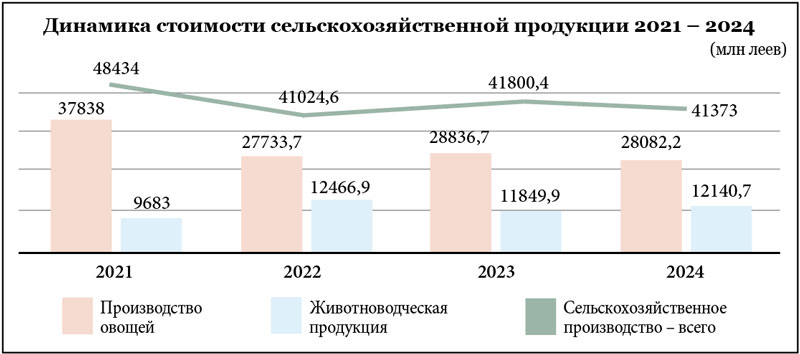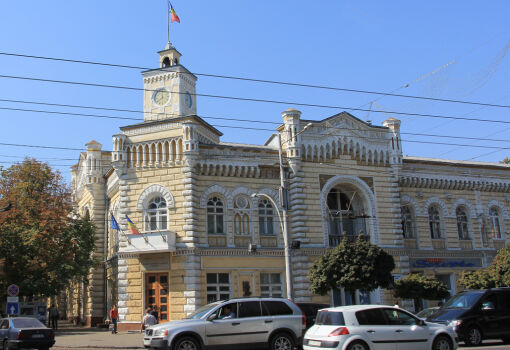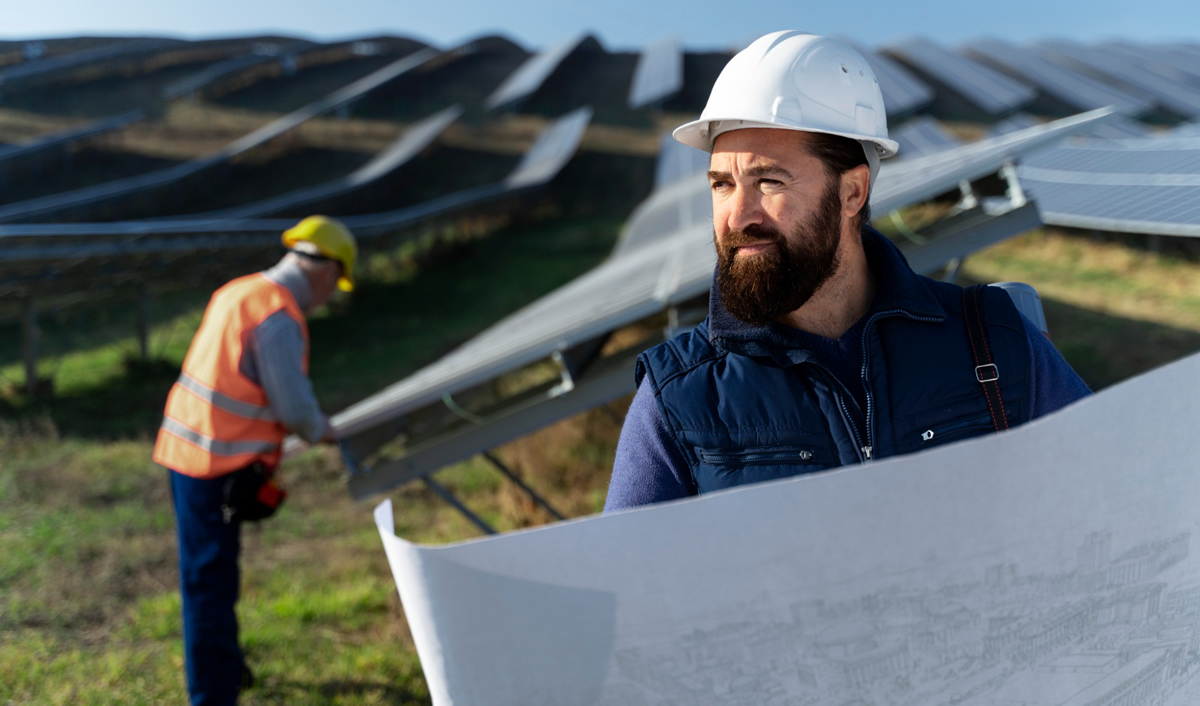
Alexandru Baltag
This is confirmed by the fact that in comparable prices the volume of agricultural production last year decreased by 15% compared to 2023. As noted in the study of the consulting center Lex Econ, the main negative factor was a sharp decline in crop production by about 23%. The decline was noted both in agricultural enterprises and individual households, which indicates the systemic nature of the problem. Yes, last year’s drought had a significant impact. But it would be wrong to overlook the deeper and more complex problems of the Moldovan agro-industrial complex because of this, the study says.
– The problems of the sector, we can say, lie on the surface,” says Lex Econ analyst Alexandru Baltag. – But they are not solved for years, so they become deeper and the negative effect becomes synergetic. These are insufficient financing and weak support from the state, technological underdevelopment of the sector, especially food and processing industry. As a result, the level of indebtedness and vulnerability of farmers is growing exponentially, both when paying taxes to the national and local budgets and to the banking system. In an effort to reduce vulnerability and minimize production risks, farmers are increasingly choosing to plant agricultural land with annual crops, especially cereals. As a consequence, agriculture continues to be dominated by commodity exports and farmers receive limited value added.
The authors of the study note that the representatives of the agricultural sector have thus found themselves in a kind of vicious circle. Lack of financing leads to the choice of the least costly methods of production, and this, in turn, affects the value added.
This situation leads to the fact that in an agrarian country, as Moldova is considered to be, more and more food products are imported from abroad, mainly from Ukraine and EU countries, replacing local products. Paradoxically, these products are often cheaper and of higher quality than local products.
– It is easier and cheaper for chain retailers and importers to buy food products from international trade hubs than from local producers,” says Octavian Kalmyk, former Minister of Economy and one of the authors of the Lex Econ study. – This is facilitated by the automatic recognition of sanitary certificates for imports from EU countries. At the same time, Moldovan producers, for example, of dairy and meat products, cannot pass through the sieve of European standards and obtain the relevant certificates. This limits their export opportunities, especially given the loss of traditional markets. Consequently, the motivation to engage in livestock farming is also decreasing.
Statistical figures confirm the experts’ conclusions. In 2024, imports of food products increased by 4.5% compared to 2023. And in general for 2023-2024. Moldova from a country exporting fruits, vegetables, sugar, etc. became their importer. In particular, the volume of sugar imports in 2024 almost doubled, vegetables and fruits increased by 10%, alcoholic and non-alcoholic beverages – by 20.2%, dairy products and poultry eggs – by 21.5%.
This negative trend is accompanied by a rapid increase in prices for agricultural and livestock products. Thus, at the end of 2024, the consumer price index for agro-food products increased by more than 7.17% compared to 2023, or 1.5 p.p. more than the annual inflation rate in the country.
However, for some commodity categories the price increase was much more significant, namely: vegetables – by 29%, including cucumbers (+27.8%), garlic (+24.4%), tomatoes (+15%); fresh fruits (+25.4%), especially grapes (+77%); chicken eggs (+17%); milk and dairy products (+3.5%), butter (+5.6%); vegetable oil (+5%), etc.
Of course, to some extent, such growth was caused by fluctuations on the international and regional markets of agricultural products, as well as by unfavorable weather conditions. But this is what confirms that Moldova has not been able to create a sustainable and stably developing agricultural sector.
From this follows not the most favorable forecast for 2025: there are no optimistic preconditions for a sustainable development of the agri-food sector. Despite the inflation rate of recent years, which cumulatively exceeded 55%, the fund of support for agriculture remained at the level of 2020 and amounts to about 1.5 billion lei. Many problems in the sector remain unresolved, which undermines investment efforts and food security.
In this regard, the study emphasizes the need for a well-considered and consistent state policy to support the agro-industrial complex, introducing incentive instruments for farmers. This should include the following steps: financial and technical support to agrarian farms; development of irrigation infrastructure and ensuring access to it for farmers focused on growing value-added crops, which will help to increase productivity and reduce the impact of climate change on agriculture; diversification of production to maintain competitiveness in foreign markets and reduce dependence on certain crops; import of new technologies and modernization of the agricultural sector; and the introduction of new agricultural technologies.














